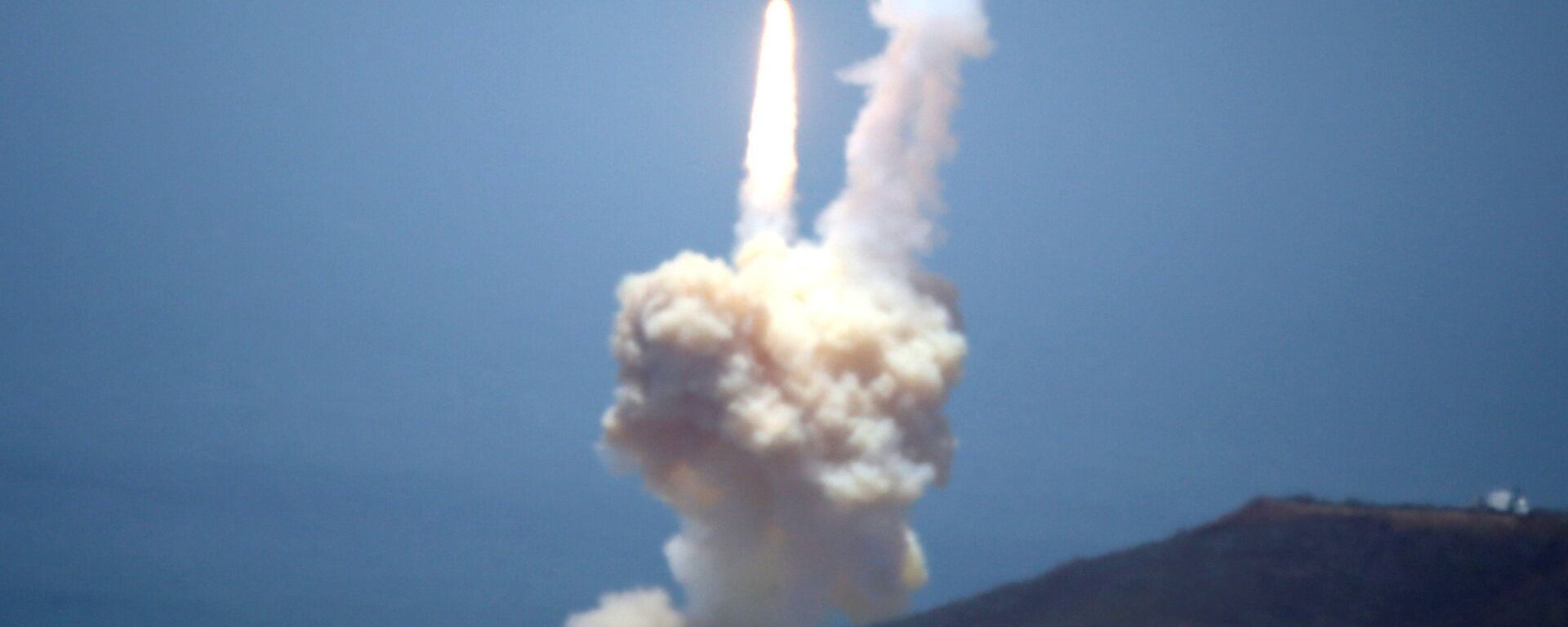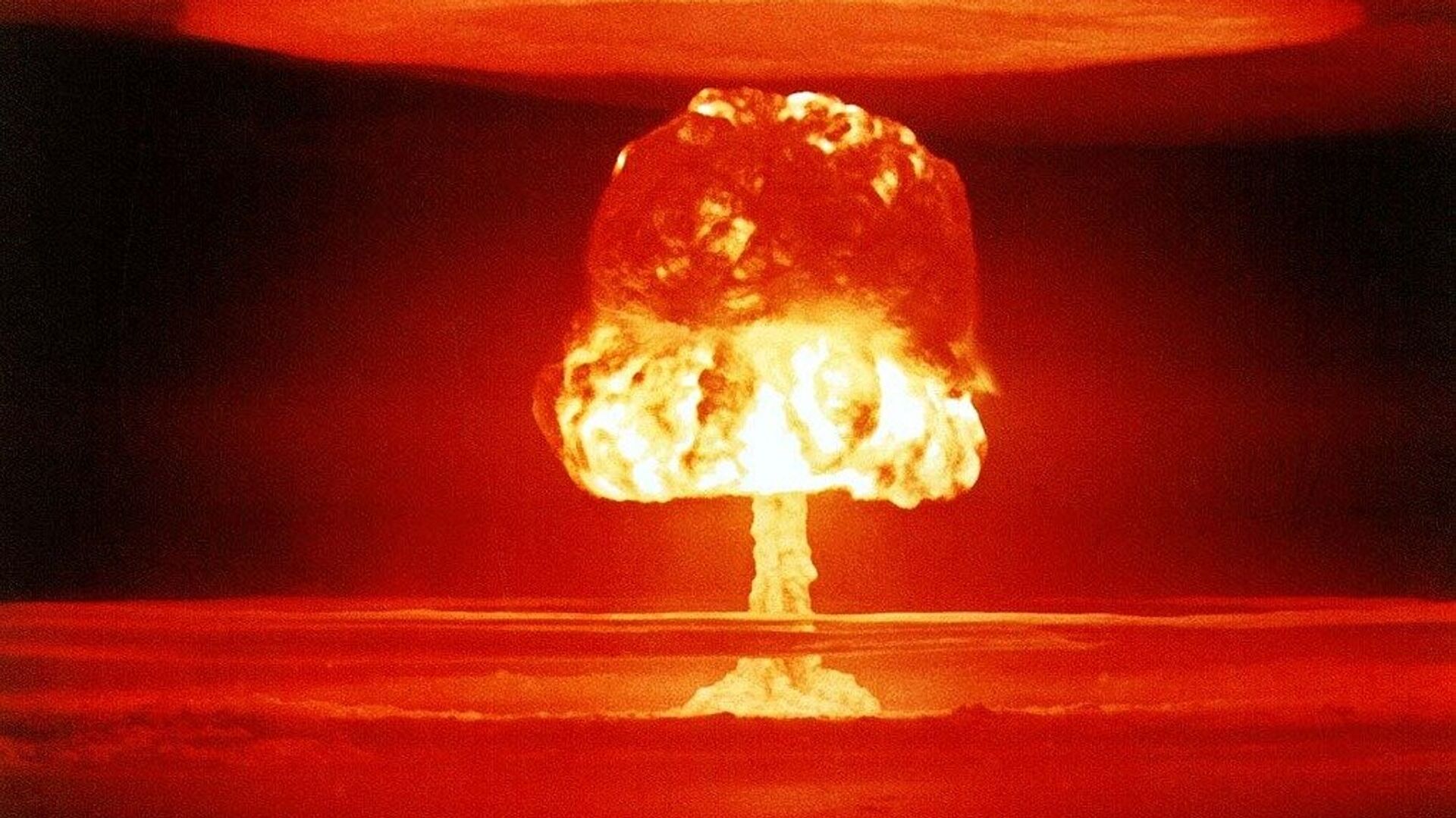https://sputnikglobe.com/20210926/un-chief-warns-humanity-unacceptably-close-to-nuclear-annihilation-1089420715.html
UN Chief Warns 'Humanity Unacceptably Close to Nuclear Annihilation'
UN Chief Warns 'Humanity Unacceptably Close to Nuclear Annihilation'
Sputnik International
On Thursday, Antonio Guterres urged all nations possessing nuclear technology to sign the Comprehensive Nuclear Test Ban Treaty, which has been inked by 185... 26.09.2021, Sputnik International
2021-09-26T12:21+0000
2021-09-26T12:21+0000
2023-02-21T13:20+0000
antonio guterres
russia
news
un general assembly
us
world
nuclear weapons
new start treaty
https://cdn1.img.sputnikglobe.com/img/106306/79/1063067909_0:354:1019:927_1920x0_80_0_0_6619ab410f5eacf4cf8521786de17836.jpg
UN Secretary-General Antonio Guterres has warned that "humanity remains unacceptably close to nuclear annihilation".In a message on his Twitter page on Sunday, Guterres singled out the "nearly 14,000 nuclear weapons" that are currently "stockpiled around the world".The message comes after Guterres voiced concern about a number of nations, including China, Egypt, India, Iran, Israel, North Korea, and the US, having yet to ratify the Comprehensive Nuclear Test Ban Treaty (CTBT). The document, adopted in 1996, was signed by 185 countries but is yet to come into force."We have remained in this state of limbo for too long", he said, praising at the same time a decision by Russia and the US to extend the New Strategic Arms Reduction (START) Treaty and engage in dialogue on the matter.In late January, Moscow and Washington agreed to extend the New START treaty for five more years without renegotiating any of its terms. The treaty, now set to expire on 5 February 2026, is the only arms control agreement between two countries that is still in force.New START, which entered force on 5 February 2011, stipulates a reduction in the number of strategic nuclear missile launchers by one-half and limits the number of deployed strategic nuclear warheads to 1,550.UN Under-Secretary-General of Disarmament Affairs Izumi Nakamitsu has, meanwhile, pointed out that all nuclear powers will at some point have to sit down for arms control talks."One thing is about the bilateral arrangement, and we should not forget that the US and Russia are the main nuclear weapons possessors - some 90 percent of arsenals. I think that's good these two superpowers are engaged and committed to negotiating further reductions. But at some point, if you are really serious about eliminating nuclear weapons, then, of course, all the other nuclear weapon possessing countries will have to come to the table and think about how to go about it", Izumi told Sputnik on Saturday.
https://sputnikglobe.com/20210211/russian-deputy-fm-any-agreement-to-replace-new-start-treaty-requires-discussing-us-missile-defence-1082041054.html
russia
world
Sputnik International
feedback@sputniknews.com
+74956456601
MIA „Rossiya Segodnya“
2021
Oleg Burunov
https://cdn1.img.sputnikglobe.com/img/07e4/09/0b/1080424846_0:0:2048:2048_100x100_80_0_0_3d7b461f8a98586fa3fe739930816aea.jpg
Oleg Burunov
https://cdn1.img.sputnikglobe.com/img/07e4/09/0b/1080424846_0:0:2048:2048_100x100_80_0_0_3d7b461f8a98586fa3fe739930816aea.jpg
News
en_EN
Sputnik International
feedback@sputniknews.com
+74956456601
MIA „Rossiya Segodnya“
Sputnik International
feedback@sputniknews.com
+74956456601
MIA „Rossiya Segodnya“
Oleg Burunov
https://cdn1.img.sputnikglobe.com/img/07e4/09/0b/1080424846_0:0:2048:2048_100x100_80_0_0_3d7b461f8a98586fa3fe739930816aea.jpg
antonio guterres, russia, news, un general assembly, us, world, nuclear weapons, new start treaty
antonio guterres, russia, news, un general assembly, us, world, nuclear weapons, new start treaty
UN Chief Warns 'Humanity Unacceptably Close to Nuclear Annihilation'
12:21 GMT 26.09.2021 (Updated: 13:20 GMT 21.02.2023) On Thursday, Antonio Guterres urged all nations possessing nuclear technology to sign the Comprehensive Nuclear Test Ban Treaty, which has been inked by 185 countries since its adoption by the UN General Assembly in 1996.
UN Secretary-General Antonio Guterres has warned that "humanity remains unacceptably close to nuclear annihilation".
In a message on his Twitter page on Sunday, Guterres singled out the "nearly 14,000 nuclear weapons" that are currently "stockpiled around the world".
"Now is the time to lift the cloud of nuclear conflict for good, eliminate nuclear weapons from our world, and usher in a new era of trust and peace", the UN chief underscored.
The message comes after Guterres voiced concern about a number of nations, including China, Egypt, India, Iran, Israel, North Korea, and the US, having yet to ratify the Comprehensive Nuclear Test Ban Treaty (CTBT). The document, adopted in 1996, was signed by 185 countries but is yet to come into force.
"We have remained in this state of limbo for too long", he said, praising at the same time a decision by Russia and the US to extend the
New Strategic Arms Reduction (START) Treaty and engage in dialogue on the matter.
In a statement to mark the 25th anniversary of the CTBT's opening for signature, Russian President Vladimir Putin stressed that the "formulation of this historic document, aimed at drastically strengthening the nuclear non-proliferation regime, has confirmed that even the most difficult issues of global security can and should be resolved by means of negotiations".
In late January, Moscow and Washington agreed to extend the New START treaty for five more years without renegotiating any of its terms. The treaty, now set to expire on 5 February 2026, is the only arms control agreement between two countries that is still in force.
New START, which entered force on 5 February 2011, stipulates a reduction in the number of strategic nuclear missile launchers by one-half and limits the number of deployed strategic nuclear warheads to 1,550.

11 February 2021, 08:40 GMT
UN Under-Secretary-General of Disarmament Affairs Izumi Nakamitsu has, meanwhile, pointed out that all nuclear powers will at some point have to sit down for arms control talks.
"One thing is about the bilateral arrangement, and we should not forget that the US and Russia are the main nuclear weapons possessors - some 90 percent of arsenals. I think that's good these two superpowers are engaged and committed to negotiating further reductions. But at some point, if you are really serious about eliminating nuclear weapons, then, of course, all the other nuclear weapon possessing countries will have to come to the table and think about how to go about it", Izumi told Sputnik on Saturday.



